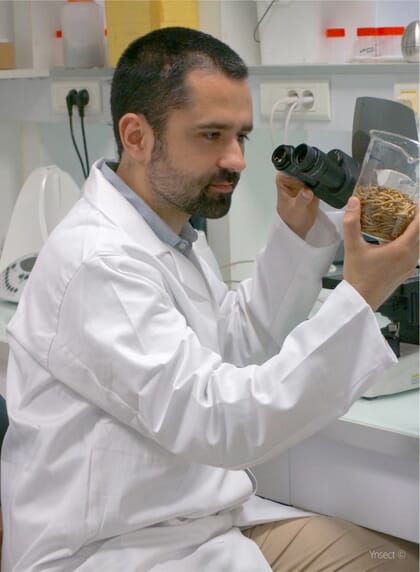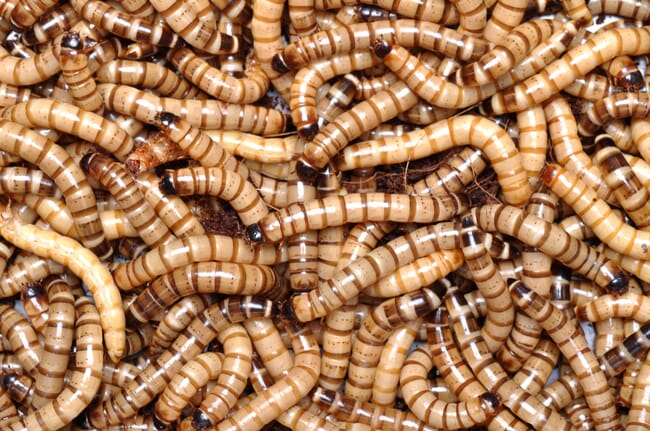
The new capital will fund completion of the largest insect farm in the world, due to open in Amiens, France in early 2022. The facility is slated to generate 100,000 tonnes of insect products annually, as well as create 500 direct and indirect jobs. The investment will also let the company expand beyond Europe and Asia into the United States, with the support of its first US-based investors, Upfront Ventures and FootPrint Coalition; and grow its markets into the supply of wet pet food.
A growing global population mixed with rising incomes have increased demand for protein and plants worldwide, not only for human consumption but also as a source of food for the fish, poultry, pigs and livestock that people eat. According to the UN’s Food and Agriculture Organisation, consumption of animal proteins will grow by 52 percent between 2007 and 2030. The spike in demand for protein and plants poses a serious risk for the world’s already fragile ecosystems, requiring extra water and land and generating greenhouse gas emissions.
To address this problem, Ÿnsect has created a patented process for cultivating mealworm to produce a variety of feed and fertiliser products – replacing animal proteins consumed in the supply chain by fish and livestock farms and pet food as well as fertilisers used in plant nutrition, while leading to greater yields and health benefits for the animals and plants being fed.
Several scientific studies have demonstrated that using Ÿnsect products in place of traditional animal proteins and chemical fertilizers have led to a 34 percent increase in yield for rainbow trout, a 40 percent mortality reduction on shrimp; a 25 percent increase in yield for rapeseed; a 25 percent mortality reduction for seabass.

According to the French startup, the new funding, and over $105 million in sales contracts, reflect the dramatic yield and health benefits of the Molitor mealworm versus other insect species, and in particular the black soldier fly. The process generates zero waste: meaning everything which is produced is sold. Analyses carried out by Quantis show that the Ÿnfarm project is carbon negative, with a sequestered value chain and avoids emitting more CO2 emissions.
“Our ambition is to revolutionise the food chain which, literally, starts from the basics: insects and soil. It concerns all of us, whether we are meat lovers or vegans because it is how our plants and animals are fed,” says Antoine Hubert, Ÿnsect’s co-founder, president and CEO. “Ÿnsect isn’t just about insect farming: with climate change and increasing populations worldwide, we need to produce more food with less available land and fewer resources, so that we’re not clearing forests and emptying our oceans. We believe Ÿnsect can play a pivotal role in this global solution.”
Ÿnsect’s production process is protected by around 30 patents, representing 40 percent of the total patent portfolio of the top 10 insect protein companies in the world. To date, Ÿnsect has $105 million worth of contracts signed to supply customers including Skretting – the largest global fish feed company; wine producer Torres; and Compo Group, the European leader in plant nutrition for gardeners.
“Skretting is proud to be a part of Ÿnsect’s success and we are confident they will continue to be a pivotal player in the global food chain for years to come,” says Jenna Bowyer, category manager novel ingredients for Skretting. “We have been working with Ÿnsect for the past five years, supporting their progress towards commercialisation through our continuous ingredient development activities while also committing to a long-term partnership.”
"Antoine and his team are tackling one of the world's most pressing and significant problems: building a stable and sustainable food supply," said Yves Sisteron, managing partner at Upfront Ventures and Ynsect board member. "Solving such a critical global issue requires deep technology and an ambitious vision, and we're thrilled to partner with this team for the journey."
Equity and debt financing (where debt represents $139m) was also sourced from Caisse des Dépôts, the ‘venture arm’ of the French state, and a pool of French banks lead by Crédit Agricole Brie-Picardie and Caisse d’Epargne Hauts de France. Arkea, Crédit Mutuel, BNP Paribas, Credit Agricole Franche Comté and Caisse d’Epargne Normandie also participated.
Eric Archambeau, co-founder and managing partner of Astanor Ventures, says: ‘Uniquely Ynsect offers its customers significant nutritional advantage that helps them improve yields. Its offer, combined with its proven ability to scale and a carbon negative supply chain, means Ynsect is bringing a highly disruptive scalable new technology that is capable of revolutionising an important segment of our most vital sector, agri-food, guided by a deep understanding of, and respect for, nature. Astanor's founding thesis has been to back globally ambitious businesses creating systemic change in food and farming while using technology to protect and restore a fragile ecosystem and we couldn't be prouder of what the Ynsect's team has achieved so far."
Ÿnsect has proven resilient throughout the Covid crisis, with minimal disruption to construction and production. As a business currently focused on the production of animal feed and plant nutrition, protective equipment and the most stringent hygiene standards are the norm.
“We’ve shown that we can weather significant shocks like coronavirus, which in the coming decades is going to be a significant differentiator between businesses,” Hubert said.



